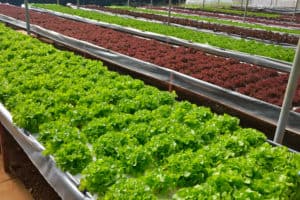New Jersey Right to Farm Act
Pursuant to New Jersey’s Right to Farm Act, “commercial farms” may engage in certain protected activities, free from interference by local zoning. While building permits are required, local zoning approvals are not required for protected agricultural practices.
Commercial Farm Certification
Commercial farms are defined as those farms of five or more acres which annually engage in agricultural or horticultural production worth at least $2,500.00 and which are farmland assessed. Note that farms of less than five acres must produce a minimum of $50,000.00 annually. Beekeeping operations need only produce $10,000.00 annually in apiary-related products or crop pollination services. Where a farmer utilizes multiple parcels, the parcels collectively constitute the “farm management unit” under Right to Farm. In order to have the protections of the Right to Farm Act, the farm must additionally be located in a zone where agriculture is a permitted use under local zoning, and the farm’s agricultural development and productivity must be in compliance with recommended agricultural management practices.
Authorized Agricultural Practices
Under Right to Farm, certain agricultural practices may be conducted in keeping with the best practices of the State Agricultural Development Committee (SADC). These protected activities include:
- Produce agricultural and horticultural crops, trees and forest products, livestock, poultry and other commodities as described in the Standard Industrial Classification or North American Industry Classification System for agriculture, forestry, fishing and trapping;
- Process and package the agricultural output of the commercial farm;
- Provide for the operation of a farm market, including the construction of building and parking areas in conformance with municipal standards;
- Replenish soil nutrients and improve soil tilth;
- Control pests, predators and diseases of plants and animals;
- Clear woodlands using open burning and other techniques, install and maintain vegetative and terrain alterations and other physical facilities for water and soil conservation and surface water control in wetland areas;
- Conduct on-site disposal of organic agricultural wastes;
- Conduct agriculture-related educational and farm-based recreational activities provided that the activities are related to marketing the agricultural or horticultural output of the commercial farm;
- Engage in the generation of power or heat from biomass, solar or wind energy within certain limits; and
- Engage in any other agricultural activity as determined by the State Agriculture Development Committee and adopted by rule or regulation pursuant to the provisions of the “Administrative Procedure Act,” P.L.1968, c.410 (C52:14B-1 et seq.).
Site-Specific Agricultural Management Practices
Additional agricultural activities may be approved by the CADB or SADC, including certain on-farm direct marketing facilities, activities, and events. Such approvals are often behind the farm-based wineries, holiday festivals, and public events enjoyed by many New Jersey residents. These activities are important in supporting the economic viability of farming and agricultural production and preservation of historic and agricultural resources.
To obtain approval of such activities, plans and application materials are submitted to the CADB with requests for approval of Site-Specific Agricultural Management Practices (AMPs). However, such agricultural development must still occur in compliance with other state and local laws, such as building code requirements and NJDEP protections of wetlands and rare, endangered, and threatened species.
Farmer’s and their tenants wishing to expand farm-related activities need to understand the distinctions between when traditional zoning approvals are required, and when an activity may be approved instead by the CADB. While precedent exists by review of past CADB decisions, the limits of Right to Farm remain uncertain with respect to certain ancillary activities. When ancillary activities are approved, approvals typically include conditions and limitations intended to protect the public welfare. In all circumstances, the health and safety concerns of the local municipality must be addressed and the local zoning board is given the opportunity to consult. Working with an attorney on such approvals is recommended.
Our Right to Farm Attorney
Attorney Nicole L. Voigt is experienced in the areas of agricultural real estate, Right to Farm, and business. Ms. Voigt represents commercial farmers and owners of agriculturally assessed properties with various matters including:
- Right to Farm applications including Site Specific Agricultural Management Practices;
- Zoning applications;
- Review, compliance, and requests under agricultural preservation easements;
- Easement negotiation;
- Agricultural assessments and appeals;
- Review of agricultural activity in Highlands;
- Buy/sell of agricultural properties including due diligence;
- Closure of contaminated sites and/or leaking storage tanks;
- Representation in agricultural mediation;
- Contract negotiations and disputes;
- Succession planning;
- Farm leases or licenses.
Contact us today if you have questions or concerns about the New Jersey Right to Farm Act.


